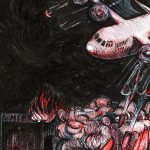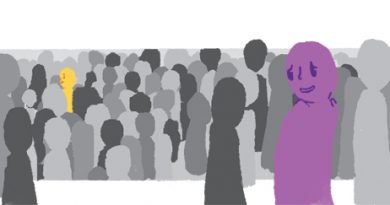Doctors Without Borders Bombed in Afghanistan
In early October, a Doctors Without Borders clinic in Kunduz, Afghanistan was hit by an American AC-130 gunship, killing 22 civilians. At least 12 of the victims were hospital staff and three were confirmed children. Two anonymous U.S. officials confirmed that the U.S. did know the site was a hospital and on a protected list, but command did not relay the information to the proper military personnel in charge of the strike fast enough. Under U.S. Rules of Engagement, The U.S. military only authorizes airstrikes to protect U.S. troops, avoid mass civilian casualties, or eliminate terrorists. The strike met none of the requirements.
Currently, military investigators have not determined the definite cause of the strike, but they have told the public that a contributing factor is the lack of familiarity between Afghan commandos and U.S. special forces involved in ordering the strike. General John F. Campbell, commander of U.S. forces in Afghanistan, confirmed that one of the units involved was a part of the Army’s First Special Forces Group, based at Joint Base Lewis McChord here in Washington. Another was the Afghani commando unit that ordered the airstrike. This unit had arrived in Kunduz just days before the incident.
In response to intense inquires, the lead Afghan officials in the area stated publically that the Taliban were “fighting from the hospital.” Yet, an anonymous New York Times source from the same organization said these claims were “unfounded, with no hard evidence.”
An anonymous U.S. Defense official told Times reporters, “The idea we did this knowing it was a protected facility but there were bad guys there is preposterous.” The official went on to tell news reporters that their records suggest the Afghan commandos in charge of the strikes had no knowledge that the site was a hospital. Yet, investigations have revealed otherwise. The Afghan commandos later stated that they believed Taliban were operating from the hospital and that was the reason for the strike. The U.S. military stated that they would never have authorized such a strike, and blamed the incident on miscommunication with the Afghan commandos.
The gunship crew involved in the attack is also under continuing investigation. Pentagon official Jim Miklaszewski announced on NBC news that, based on audio records, the crew of the AC-130 gunship questioned the legality of the airstrike. As of yet, the U.S. military has not pointed out specifically who cleared the strike, but General Campbell has claimed responsibility for the incident and says condolence fees will be payed to the families of the dead civilians.
John Cone, the executive U.S. director for Doctors Without Borders, is calling for an independent investigation. He stated in a CNN interview: “It’s one of the most clear-cut cases that we can think of where the laws of war were violated, where a protected medical structure should have been protected, instead it was bombed, and for us, it’s really one of the gravest incidents we’ve faced in our organization in 44 years and that’s why we’ve asked for this independent inquiry by the humanitarian fact-finding commission.”
This tragic incident has made some UWT pre-med students worried, and they now question joining an organization like Doctors Without Borders.
Kristen Piephoff, President of the UWT Pre-Health Society, shares her thoughts on this tragic incident: “I feel like I would think twice about joining an organization like Doctors Without Borders, because the U.S. is supposed to protect medical groups like this and they didn’t in this case.” She went on to say that pre-health students should carefully consider the pro-bono or non-profit organizations they choose to join.
“The Doctors Without Borders organization is known for going to areas where conditions are the worst. So they know they may be sending people into dangerous situations.” She also said that despite this, the incident was still a tragic and preventable one.
Taylor Avalos, a UWT pre-dental student, shares her opinion on the bombing:
“This event impacts Doctors Without Borders because their safety was compromised, although they have knowledge that they could encounter dangerous situations, it appears that this incident should not have taken place.” Avalos went on to say that Doctors Without Borders will be further impacted by a loss of interested students who feel that they will be put in danger’s way if they join groups like these. Avalos and Piephoff’s comments serve as a reminder of the benefits and downfalls of risking one’s life for others in the medical field.
Joining a group like Doctors Without Borders allows people in the medical field to give back to the world in ways that nobody else can. It can be a tough choice, but some choose to risk it all to help others.






